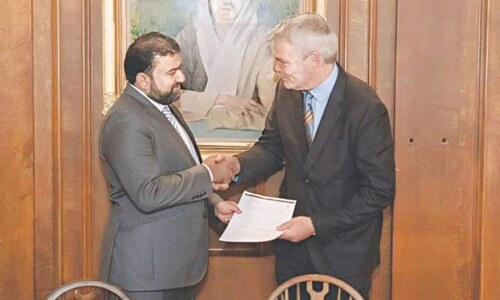ISLAMABAD: The power sector of Pakistan is a mess and requires comprehensive and swift governance and policy reforms.
Some of these include development of business models to boost renewable energy, liberalisation of the energy market through deregulation and privatisation, re-negotiations of generation tariffs for independent power producers, segregation and deregulation of the administrative and operational activities of the distribution companies leading towards public-private partnership and implementation of accelerated reforms for modernisation.
These and several other policy options and practical solutions for the sustainable development of the sector were put forward in a study ‘Pitfalls in power sector of Pakistan: accumulation of circular debt - causes, consequences and way forward’ conducted by the Institute of Policy Studies (IPS).
The research report on the constraints and shortcomings of the power sector is particularly focused on identifying factors contributing to the exponential increase in circular debt which has now reached Rs4 trillion and providing doable solutions.
Re-negotiations of generation tariffs for IPPs, deregulation of administrative and operational activities of distribution firms urged
The report claimed that the power sector had long been stifled by numerous issues that hampered not only sustainable development but also the efficient progression and strategic growth of this vital sector. As a result, Pakistan has been severely affected by the energy crisis, resulting in a negative impact on the overall economy.
Among the factors contributing to the rise in circular debt are dependence on expensive imported fuels, high generation costs from thermal sources, unfavourable rupee-to-dollar parity, poor governance and policy lapses, regulatory issues, inadequate recovery of distribution companies’ revenues, financial sustainability issues, capacity charges, aging infrastructure and line losses.
The rise in circular debt requires regular tariff hikes to maintain proper cash flow for public and private entities and this affects the energy affordability of the consumers.
“Additionally, the vertically integrated market of Pakistan’s power sector is partially monopolised, where state institutions play a dominant role. This structure results in non-existent competition between the entities. Currently, 78 IPPs are operating in Pakistan and are majorly based on imported fuel,” the study showed.
“The country’s total installed capacity is 40,813 MW, excluding K-Electric. The peak demand witnessed in the system during FY2021-22 was 28,253 MW. However, the transmission capacity of the electricity infrastructure has remained stagnant at 23,000 MW. On the other hand, transmission and distribution losses of the state-owned distribution companies in FY2021-22 amounted to over 17pc as against the 13pc target determined by Nepra. So even with surplus electricity, the consumers face loadshedding despite paying higher electricity rates because of obsolete and deficient transmission and distribution system. In this scenario, public-private partnership is the way forward to extricate the power sector from this quagmire.
This also requires new investments in the transmission and distribution system and shift to the latest technology to reduce line losses. A major reason for the burden on consumers is the obsolete and less efficient power transmission system; therefore, power transmission must be made an investment priority area along with energy transition and digitization,” it stated.
Commenting on the report, IPS Chairman Khalid Rahman emphasised the urgency for formulating a financing plan and investment policy by the government.
He said investments oriented towards the transmission and distribution system along with digitisation can address the sector’s inefficiencies and also help in rationalising power tariff, one of the highest in the region.
He also underlined the dire requirement of public-private partnership to boost the sector.
Published in Dawn, May 2nd, 2023








































Dear visitor, the comments section is undergoing an overhaul and will return soon.